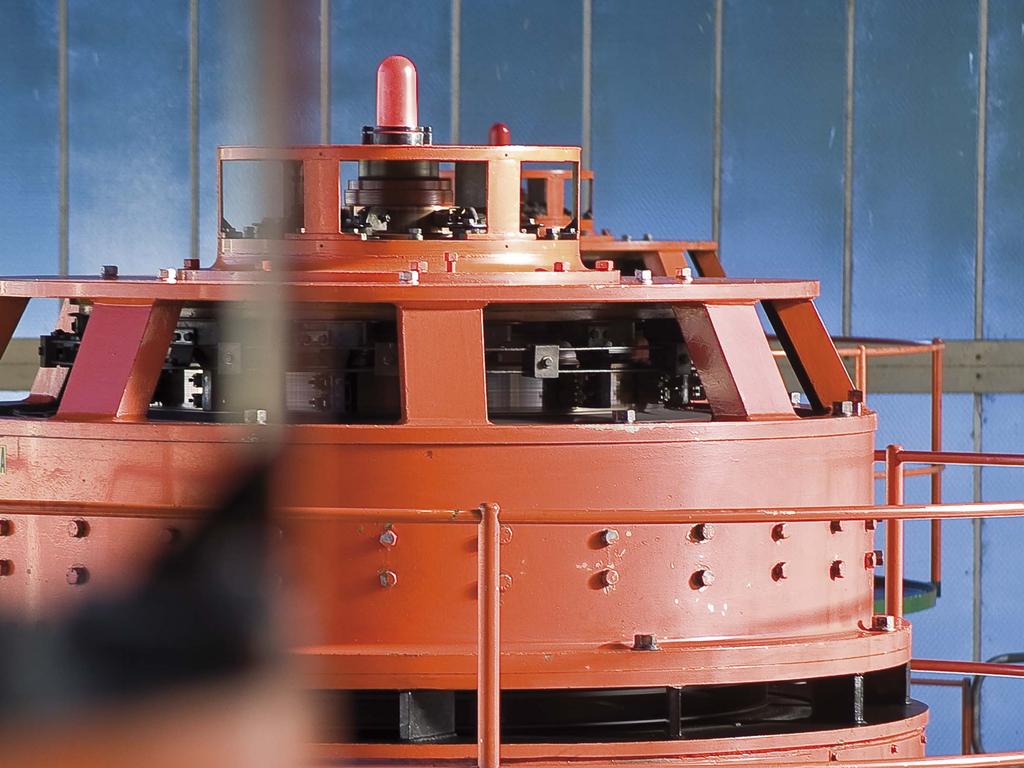APA was full of optimism. But the walk has been wanting

Since July 2019, when Wheals took over as chief executive, the share price of APA has barely moved. There have been opportunities missed and most importantly the gas pipeline company has so far failed in its mission to diversify in any major way into the electricity game.
The company also announced it would pull out of North America, where it had been searching for growth in transmission.
The talk at APA has been green and full of optimism. The walk has been wanting.
Wheals says after 14 years, three in the top job, he is making the right decision for himself and APA. “I’m an avid long distance runner and every runner needs to know when they have run their race. I feel like this is the right time for me to move on and do something different,” he says
Not to say things have been easy. Wheals talks about the intensity of being the top job 24/7, made all the more challenging with what is playing out in energy markets. And having to run business remotely during Covid-19.
Add to that, the last few of years has seen a revolving door with senior executives including Peter Fredricson, Sam Pearce, Nevenka Codevelle departing.
APA chairman Michael Fraser put in Wheals after pipeline veteran Mick McCormack stepped down after his own 14 years stint.
Wheals is said to be well-intentioned with a careful eye for the budget, but calling the big decisions and rallying the team behind him was not a strength.
Unfortunately that is what is required at APA. At least, that is what worked a treat under his predecessor.
McCormack left huge shoes to fill. From 2005 to 2019, the share price rose from around $3.50 to over $11.00.
McCormack was transaction focused. Through acquisition and construction he built what is now most of the east coast gas grid. He was also a larrikin and the drummer from the APA All Stars.
In a delayed farewell for McCormack in 2021, Fraser described him as having played a great innings off the front foot at all times, right from his start as a defects whisperer on the Mooney pipeline in the 1980s. “Mick’s time as CEO will be defined by the financial success of the organisation over his tenure and the asset footprint and the capability set of the organisation he has left behind,” Fraser said.
But it was McCormack powerful personality within a quiet board that enabled him to dictate the headstrong corporate culture.
APA’s talk of net zero emissions and electrification was loud but instead of launching early, board and management left it too late. Private equity with deep pockets was also wired to the opportunity with KKR taking Spark Infrastructure and, after a $17bn battle, Canadian giant Brookfield buying AusNet.
APA’s strategy with the regulator under Wheals has also changed dramatically from the former era. Fraser acknowledged McCormack’s obvious fondness for the Australian Competition and Consumer Commission after his vocal attacks on the regulator’s report into the gas market.
For good or bad, APA seems to be far less part of the public transition debate.
APA’s decision to pull out of the US comes after considerable investment of management time which failed to secure deals, including the Chesapeake electricity business which had been on the radar for a number of years.
The decision means that Ross Gersbach, the head of North America, will return to Australia and potentially be a contender for the role of chief executive.
Indeed, had the board chosen Gersbach over Wheals for CEO, the APA story might have been different. Until 2019 Gersbach was strategy and corporate development chief and had 25 years of experience in energy related sectors including infrastructure investments, M&A and strategic developments.
Today APA is a gas business at a time when gas is back in favour. The company’s pipeline contracts are inflation-linked and for now it remains a cash cow as Wednesday’s full results will confirm with $1.4bn of organic projects underway.
The question for the next CEO is what happens when those pipeline contracts fall off in five to 10 years. Long-term contract revenue must be replaced by more revenue.
Fraser says the board wants APA to pursue the multi-billion dollar energy transition opportunity in Australia: the Bass Link, the Marinus Link, linking renewable energy zones to the grid, and so on.
APA chief financial officer Adam Watson takes over as interim CEO and would be expected to put his hat in the ring for the permanent role. He joined APA in 2020 from the CFO role at Transurban, one of the corporate masters of transaction work and construction.
Wheals says there is no truth whatsoever in the suggestion of tension between himself and Watson – and he will stay on to ensure a seamless handover.
Whether APA itself will again become a target for a takeover is unlikely unless the price falls.







The shock departure of APA boss Rob Wheals shows that it is not at all easy to be a champion leader – especially when your board is not a strong one.